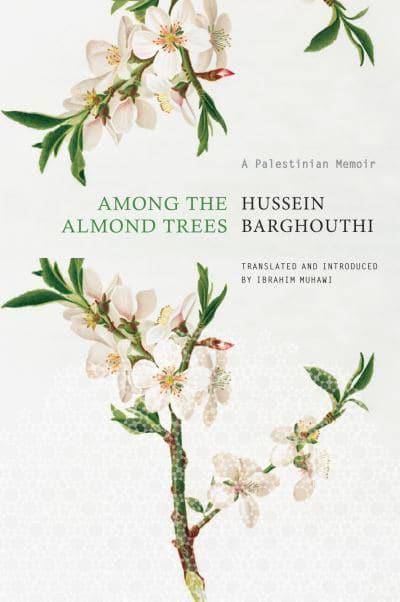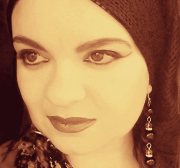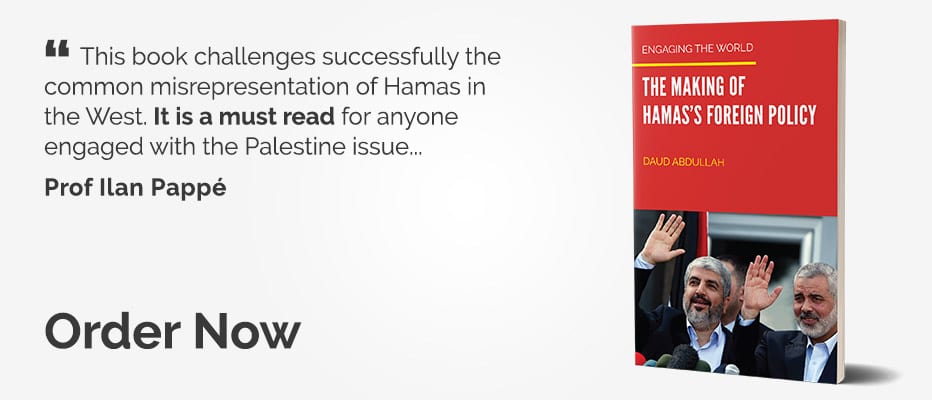The Palestinian return is never as envisaged. For Palestinian poet and author Hussein Barghouti, his struggle with cancer prompted a return to Palestine from his "voluntary exile" after 30 years, as he describes his absence due to studies and work. Among the Almond Trees: A Palestinian Memoir (Seagull Books, 2022) is a literary narration of a return that is marred by the author's impending death. Commencing with Barghouti's visit to the hospital in Ramallah at the time of the Second Intifada, he ponders his presence amid "the martyred and the wounded", almost as if realising that his identity in the current political situation is somewhat lost.
Yet the author brings Palestine to life through rich, evocative recollections, observations and slivers from the past, to a present that is intrinsically woven into its history. Barghouti's return to Palestine with his wife and son is not always the primary focus of this literary memoir, as the author ponders his origins and the stories of his family, while occasionally, yet with bitterness at the loss of land, contrasts the memory of Palestine's past and its untarnished land with the growing presence of colonial settlements.
"As I stood there among those ruins," he writes, "I felt there was an enormous difference between the two kinds of light: moonlight, and the halogen light flooding out of the settlement. The latter is focused and oppressive, its glare extreme, reaching even beyond the barbed wire that isolates every such settlement from its environment."
READ: Israel prevents Hussein Al-Sheikh from meeting imprisoned Fatah leader Marwan Barghouti
Barghouti also narrates his son's birth juxtaposed against the reality of Israel's colonial violence. "From the day of his birth, above the woods, there was the whirring of Israeli helicopters. He would hear that whirring sound at night, and trace its movement by moving his head under the faint light of the candle as if he were following his destiny, or as if he were a sunflower shadowing a day of resurrection."
Colonial expansion is a recurring reality in Barghouti's memoir, reflecting the geographical disappearance of Palestine. Yet the author's vivid narrations on Palestine, through folklore, religions, Palestinian folktales, the themes of resurrection and reincarnation, memory and identity, illustrate how vast Palestine is, and how Palestine is perceived as a place of a cycle of beginnings and endings. For Barghouti, death is also replete with symbolism, and his musings on the spiritual journey bring a perception which the translator explains succinctly in the introduction: "History comes to an end with the death of the individual. What remains are stories."
Stories have presence, which is what Barghouti brings forth in his memoir. The presence of Palestine permeates the book, and so does the author's presence, despite impending death. Night is another notable presence throughout the memoir; most of Barghouti's musings take place after dark and instil vivid imagery in the reader as he narrates stories told to him by his father, which then waft over to his immediate surroundings, as if prompted.
Light also prevails in the book, both as a contrast and also in its own element as illumination, taking on various meanings through Barghouti's recollections and his discussions of the theme through the region's traditions. Perhaps the most striking observation Barghouti makes, however, is the concept of light within hospitals and prisons, which he reflects upon during his 17-day stay in Ramallah hospital. "It seems as though one of the basics of hospital and prison architecture in our lands is to subject patients and prisoners to isolation by light, for hospital and prison are two sides of a single comparison." In the midst of philosophical discussions, Barghouti interrupts, as if to remind himself and us of another world away from stories, one where settler-colonialism has taken away the source of Barghouti's remembrances in the Palestinian landscape.
Poignantly, Barghouti also reflects on names and places in terms of the Palestinian diaspora. "I have never met anyone who considered Rusaifa to be the city of his name. This is the secret of Rusaifa itself: a vessel in which reside names that have lost their cities."
OPINION: From a sidewalk school book seller to a connoisseur of books and bookstore owner
Uncertainties abound in Barghouti's return, and the frequent musings on the past and future, whether through observations, references to the poetry of Mahmoud Darwish, or the cycles of reincarnation and life, only give further depth to the nuances of thought imparted by the author.
"No one can return to his beginnings, even occasionally, unless he goes to his history, to himself in history," writes Barghouti. The same can be said for Palestinian identity which he brings out through asserting Palestinian history though his own recollections and those of his family. What becomes of the writer and his writings? What becomes of the narrative upon death and how will words live on? How does identity prevail and how does it transform?
Barghouti's writing has resonance and additional readings of this book will undoubtedly raise much awareness and many questions. Time becomes both timeless and a limitation. Barghouti's memoir, while deeply personal, cannot but invoke the same existential questioning for Palestine.




